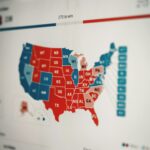Should The U.S. Overlook a Pogrom To Reset Relations With A Nuclear Power?

George W. Bush treated India like a great power, a decision that remains an unheralded foreign policy success for the former president. The agreement signed between India and the United States appeared to pose a threat to nuclear weapons proliferation. But, in retrospect, the damage to the international proliferation seems miniscule in light of subsequent global events. US-Indian relations must again be re-calibrated in light of the sudden victory of Narenda Modi, who now leads India’s first majority government not run by the Congress party. The Congress Party, the party of Gandhi and Nehru, has dominated India for the 67 years since the nation achieved independence.
Despite Bush’s breakthrough, US-India relations have stumbled in recent years, with the Indian side deserving a lot of the blame. On December 11, 2013, Devyani Khobragade, then the Deputy Consul General of the Consulate General of India in New York City, was charged by U.S. courts with visa fraud in relation to gaining a visa for her domestic servant. Indian authorities who responded with moves ranging from the symbolic to wreckless. Barricades placed in front of the U.S Embassy in Delhi meant to deter car-bombings and terrorist attacks following the events of September 2011 were suddenly removed. Indian authorities also announced that US embassy personnel would now be subject to traffic violations. The Indian government cited a need to improve traffic flow in the metropolis of 22 million people. India also moved to stop allowing embassy staff to enjoy alcohol and food imports at concessional rates.
The election of Narenda Modi last month offers a way to “reset” U.S-India relations, one that the United States and international community should not ignore. Modi was the subject of US sanctions for his role in prompting sectarian pogrom against Gujarati Muslims in 2002, but the incident was over 12 years ago. While India’s Christian and Muslim population fear Modi’s Hindu nationalist party, attitudes maybe changing. As a recent Cato Institute blog post puts it, Modi’s liberal economic policies have benefited both Muslims and Hindus in Gujarat, the province he ruled before stepping onto the national stage.
“In 2011-12 , Gujarat had the lowest Muslim rural poverty rate among all states. Its overall poverty rate for Muslims (11.4%) was far lower than for Hindus (17.6%),” Swaminathan S. Anklesaria Aiyar wrote. “This was also true of six other states, so Gujarat is not unique in this.”
Under Modi, the peninsula saw the highest economic Freedom in India. Robert Kaplan compared it to South Korea. Modi has brought the same no-nonsense to his campaign, running on a “development not deity” and “toilets not temple” message.
Narendra Modi is exploring breaking up state giant Coal India Ltd and other moves to allow foregin players into India’s energy market. Previous governments regarded the coal industry as too strategic to the country too permit foreign involvement. Yet, at the same time Indian businessmen lament that a country with massive coal reserves was forced to import coal from abroad. Part of the challenge is geological. For example, Indian coal is located at greater depths and requires more capital investment to get at than, say, the shallow coal of say Indonesia one of the world’s largest exporters. But the coal issue is a result of India’s complex bureaucratic system, or “liscence Raj” — a legacy of the country’s long flirtation with socialism. Today, India is the world’s third-largest coal importer, even though it sits on the fifth-largest reserves.
There is no doubt he will find India far harder to rule than Gujarat. Technical issues aside, it is hoped Modi can help liberalize the Indian economy and lift millions out of poverty, help tamp down India’s Maoist insurgency (the nation’s number one security threat) and provide a bulwark against Chinese expansion. These are tall orders for any new leader and Modi will need all the international friends he can acquire. Thus, despite his involvement 2002 pogrom, the United States should reach out to the new leader and continue a strong relationship.
Follow Joseph Hammond on Twitter. Image courtesy of Big Stock Photo.




